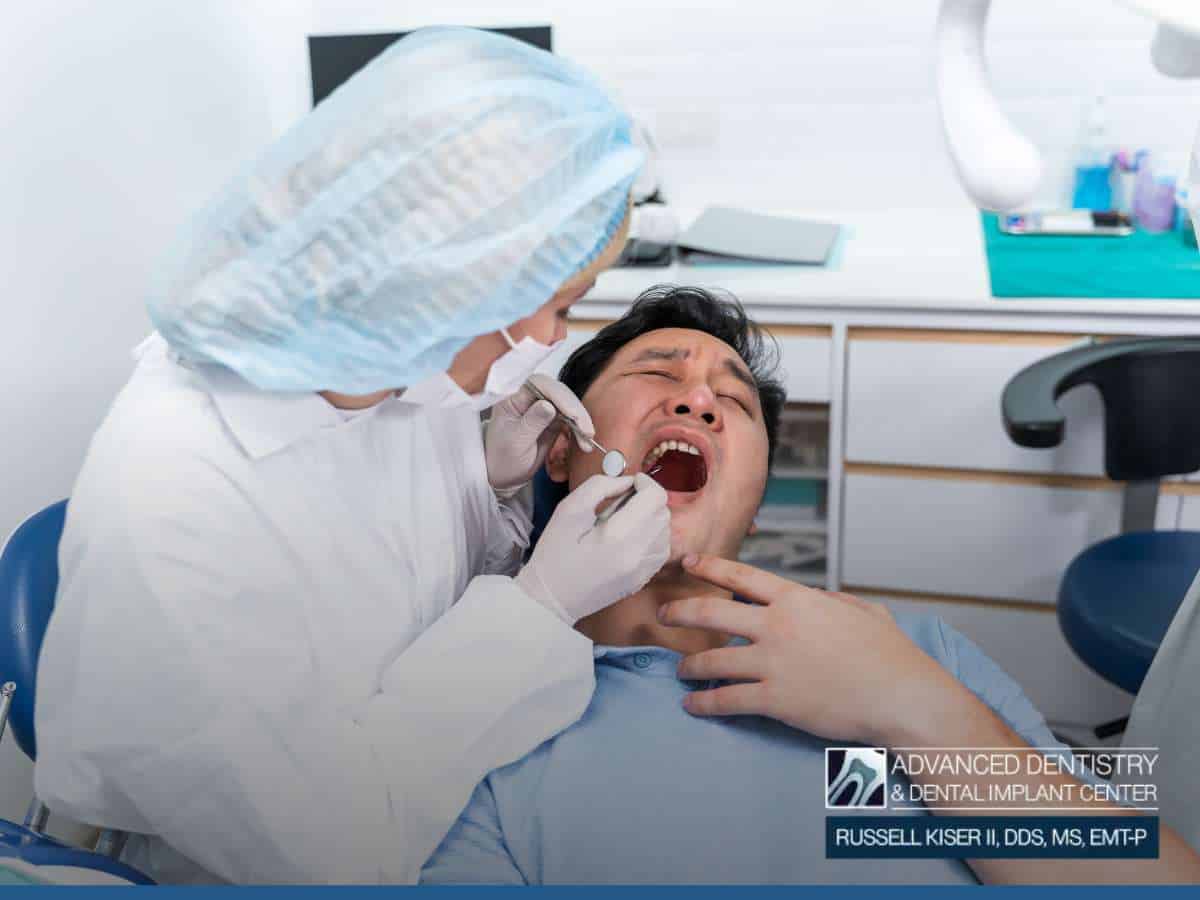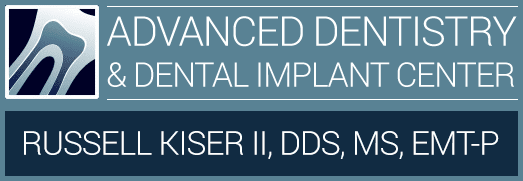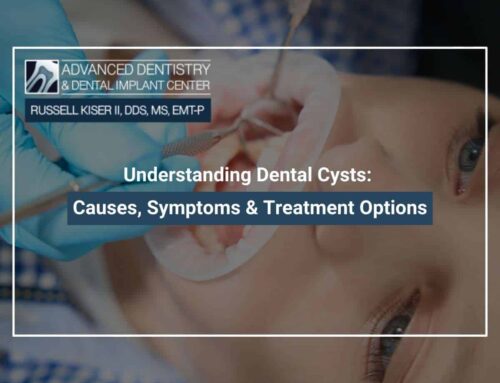What Is a Dental Emergency & Why Quick Action Matters
Dental emergencies can be both painful and stressful, but knowing how to react quickly and properly can save your teeth, protect your oral health, and prevent further complications. Whether you experience a sudden toothache, a broken or chipped tooth, or a lost crown, immediate action and proper care can make all the difference.
In this guide, we’ll walk you through common dental emergencies and how to manage them effectively until you can visit our office.
1. Emergency Toothache Relief: What To Do For Sudden Tooth Pain
A sharp or persistent toothache often signals an underlying problem such as infection, decay, or inflammation that demands prompt dental attention to prevent complications. When this happens, immediate self-care can help relieve pain and avoid worsening the issue:
- Rinse your mouth gently with warm water to cleanse the area and wash away irritants or debris.
- Use dental floss carefully to remove any trapped food particles causing irritation or pressure around the tooth.
- Avoid placing aspirin or other medications directly on the tooth or gums, as these can cause chemical burns and worsen sensitivity.
- Apply a cold compress on your cheek near the painful tooth to reduce swelling and numb the area for temporary relief.
If the discomfort persists beyond a few hours or intensifies, it’s essential to contact a Mansfield endodontist immediately for evaluation. Specialists can provide treatments like root canals or other therapies that remove infected tissue and save the tooth.
Ignoring a severe toothache risks developing a serious infection or abscess, which could affect your overall health and require more invasive procedures.
2. Broken or Chipped Tooth? Steps To Take Before Seeing a Dentist
Accidents, sports injuries, or biting down on hard objects can chip or fracture a tooth, often exposing sensitive layers underneath and causing pain or discomfort. Proper first aid and timely dental care are key to preserving your tooth:
- Save any broken fragments you can find and rinse them gently with warm water to keep them clean for potential repair.
- Rinse your mouth thoroughly to clear any debris or sharp pieces that might injure your tongue or gums.
- Use gauze to stop bleeding if present, applying firm but gentle pressure.
- Apply a cold compress externally to reduce swelling and manage pain.
- Avoid chewing on the injured side until you see your dentist to prevent further damage.
Depending on the severity of the break, treatment may involve options such as dental bonding, using resin materials to restore the tooth, or crowns that fully cover and protect the damaged tooth.
Acting quickly can restore both function and aesthetics while preventing sensitivity or decay.
3. Knocked-Out Tooth First Aid: Save It Before It’s Too Late
Losing a tooth completely out of its socket is one of the most urgent dental emergencies. Prompt and careful action dramatically improves the chances of saving the tooth:
- Handle the tooth by the crown (the chewing surface), avoiding the root to prevent damaging delicate cells vital for reattachment.
- Rinse the tooth gently with water, but do not scrub or remove any tissue fragments that aid in healing.
- If possible, reinsert the tooth into its socket, making sure it’s properly aligned, and hold it in place by gently biting down on a clean cloth or gauze.
- If reinsertion isn’t feasible, keep the tooth moist by storing it in milk or a tooth preservation kit designed for this purpose.
Seek emergency dental care within 30 minutes to an hour. A dental specialist can sometimes reimplant the natural tooth or discuss alternatives such as dental implants or bridges. Acting quickly can save your natural smile and help you avoid more invasive restorative options.
4. Lost Dental Filling For Crown: Temporary Fixes That Help
Losing a filling or crown exposes the underlying tooth to sensitivity, decay, and possible infection. Although it can be alarming, this common problem can be temporarily managed until professional care is available:
- Rinse your mouth and gently clean the affected tooth area to remove debris and reduce bacterial load.
- If you still have the crown, you may use over-the-counter dental cement to temporarily reattach it, protecting the tooth from further damage.
- Avoid chewing on that side of your mouth until a dentist can provide a permanent solution.
For example, contact a provider specializing in cosmetic dentistry in Mansfield as soon as possible for a replacement crown or restoration. Delaying treatment risks worsening the damage, increasing discomfort, and potentially requiring more complex procedures.
5. How To Treat Bleeding Gums, Lips Or Tongue After An Injury
Cuts or trauma inside the mouth can bleed heavily and cause significant discomfort because of the area’s rich blood supply. Proper initial care can control bleeding and promote healing:
- Rinse your mouth with warm salt water to gently cleanse the wound and reduce the risk of infection.
- Apply gentle, steady pressure using sterile gauze or a clean tea bag to stop bleeding effectively.
- Use a cold compress on the outside of your mouth or cheek to reduce swelling and soothe pain.
If bleeding continues for longer than 15 minutes or the injury appears deep or severe, seek emergency dental care immediately. Such wounds may require stitches or further professional treatment to ensure proper healing and avoid infection.
When To Call An Emergency Dentist & Why Acting Fast Matters
If you are unsure whether your dental issue constitutes an emergency, it’s always best to err on the side of caution and seek professional advice. Delaying treatment can cause minor problems to worsen, sometimes requiring more invasive procedures.
Many emergency dental providers, including a Mansfield family dentist, offer prompt and compassionate care in a comfortable setting, often staffed by specialists such as board-certified dental implant experts and endodontists.
Tips to Prevent Dental Emergencies & Protect Your Oral Health
While not all dental emergencies can be avoided, adopting healthy habits can reduce your risk:
- Wear a mouthguard when playing sports or engaging in physical activities.
- Avoid chewing hard objects such as ice, popcorn kernels, or pens.
- Maintain regular dental visits and good oral hygiene to prevent decay and gum disease.
- Treat dental issues early, such as cavities or cracked teeth, before they escalate.
Taking proactive steps can keep your smile healthy and minimize the chances of urgent dental problems.
The Importance Of Choosing The Right Dental Provider
During a dental emergency, you want a trusted professional who can provide expert treatment swiftly and efficiently. Whether it’s restoring a chipped tooth with dental veneers or performing root canal therapy, selecting a dental office with comprehensive services and specialists matters.
Dr. Kiser Dental is proud to offer advanced dentistry, including implants, crowns, bridges, and cosmetic treatments, all under one roof. Our team focuses on your comfort and lasting oral health outcomes.
Get Professional Help For Dental Emergencies
If you experience a dental emergency, don’t wait. Reach out to Advanced Dentistry in Mansfield for fast, expert care and the peace of mind you deserve.
Our experienced team is ready to help you preserve your smile and relieve discomfort efficiently. Contact us today to schedule an emergency appointment!
Advanced Dentistry & Dental Implant Center
1221 S Trimble Rd Suite A1,
Mansfield, OH 44907
Tel: (419) 756-2880
Email: [email protected]









